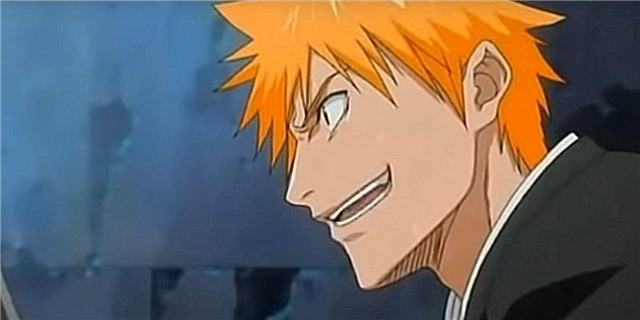The cult of personality is often created by propaganda, with the help of which the political leader is glorified in the eyes of the entire nation.
10. Turkmenistan - Saparmurat Niyazov
Turkmenistan, a country in central Asia, was part of the Soviet Union until independence in 1991. Politician Saparmurat Niyazov began his term as First Secretary of the Turkmen Communist Party in 1985. Years later, in 1999, he was named President for Life. With this step, he inscribed his name on the list of outstanding world leaders who have created a cult of personality. His totalitarian rule was marked by regular political reprisals against political opponents who received various prison sentences or were placed in psychiatric clinics.
The media were closely monitored by the state. Niyazov passed a number of controversial laws, including a ban on ballet and opera, and a ban on men wearing long hair and beards. In addition, the president renamed the names of the months of the year in honor of his family members and erected a rotating golden statue in his honor at the top of a building in the state capital, Ashgabat.
9. Iraq - Saddam Hussein
Saddam Hussein was the fifth president of Iraq from July 1979 to April 2003. He was an adherent of socialism and Arab nationalism. Hussein's personality cult manifested itself in his absolute supreme power, violation of laws, which, as a rule, led to fatal consequences. Under Hussein, the military achieved interference in the work of the government. The president assigned the leading role in economic policy to the nationalization of the oil industry and gaining control over the country's national banks.
Hussein's regime was characterized by violence and repression. The country's security forces are responsible for the deaths of approximately 250,000 people. The end of Saddam Hussein's rule came with the 2003 invasion of Iraq by American troops. After the capture of Hussein, he was imprisoned, a trial, where he was convicted of numerous crimes against humanity, and then executed in 2006.
8.North Korea - Kim Il Sung and Kim Jong Il
Personality cults use propaganda to create an idealized portrait of the leader and the regime. Known as "Great Chief Comrade Kim Il Sung" (Sr.), he has established strict rules for every aspect of life in North Korea. Citizens were divided into 5 layers in the Songbun system. Belonging to a certain layer is due to the actions of one of the ancestors.
In 1967, Kim Il Sung established his "monolithic ideological system" which prohibited any form of contradiction. After the death of Kim Il Sung in 1994, his son, Kim Jong Il, took his place. The new ruler was in the spotlight of the international community in connection with his aggressive attempts to create a powerful atomic weapon /.
7. Haiti - Francois Duvalier
Haiti was first a Spanish and then a French colony. François Duvalier came to power in 1957 as national president. Domestic politics of Duvalier, also known as "Pope Doc", relied on violent organizations, created by him special police forces, better known as "Tontons Macoutes" or "Scarecrows", to intimidate opponents and objectionable members of society.
Among the dictator's most ridiculous claims was that he considered himself the physical embodiment of his country. He was convinced that he had a special relationship with God, and considered himself immaterial, unlike an ordinary person. Duvalier went so far as to glorify his name that he added a special part to praying to God.
6.Russia - Joseph Stalin
Joseph Stalin is considered one of the most ruthless, powerful and bloodthirsty dictators in world history. The Russian leader mixed the ideas of Marxism and Leninism, and created on their basis his own idea, known as Stalinism. His domestic policy was aimed at transforming the Soviet Union from a country with a predominantly agricultural sector to an industrial state. The consequence of the dictatorial policy pursued by Stalin was the catastrophic famine in the country in 1933-34 and countless victims among the population.
As a result of massive repression, many Russians were imprisoned, exiled or killed, and political opponents of the dictator were destroyed during the Great Purge. Despite the fact that Stalin made a pact with the Nazi regime at the beginning of World War II, Hitler invaded Russia in 1941, which marked the beginning of a long and bloody conflict between the two powers.
5. Albania - Enver Hoxha
The authoritarian regime of the communist dictator Enver Hoxha lasted for over 40 years - from 1944 until his death in 1985. Hodge's politics are described as a distinctive ideology, different from the original ideology of Marxism-Leninism. Khoja was a charismatic personality, which contributed to his retention of power and popularity among the citizens of his country. The Hoxha government did not respect the rule of law, democracy and personal freedom of citizens.
Imprisonment after a show trial and torture was a common occurrence in the life of the country. Any dissent was severely punished, from placement in forced labor camps to execution. Hodge's political regime included control over the media, restrictions on those traveling abroad. In an attempt to limit the influence of Islam, the wearing of beards was prohibited.
4. Equatorial Guinea - Francisco Macias Nguema
Equatorial Guinea is a small state located on the east coast of Africa. Francisco Macias Nguema served as the country's first prime minister since 1968. His reign lasted until a political upheaval in 1979. Nguema became an orphan at a young age: his father was accused of witchcraft and killed by the Spanish authorities, and some time later his mother committed suicide. Nguema began to organize his political career in various positions, including mayor, territorial member of parliament, and deputy prime minister. After holding free elections in the country in 1968, Nguema rose to the post of head of state.
From that moment on, the leader began to move towards expanding his political influence over all branches of government. In 1972, after the transformation of all political parties into the United National Party, Nguema received the post of president for life, who had absolute power over the entire nation. In the established regime, violence played an important role. Countless families have been killed and entire villages destroyed by the President's orders. Nguema's behavior and some of his strange decrees can be explained by his constant use of cannabis and other psychotropic substances.
3. Vietnam - Ho Chi Minh
Ho Chi Minh was a communist leader who began his career as chairman and first secretary of the Workers' Party of Vietnam. As a young man, Ho Chi Minh studied and worked in foreign countries, including France, USA, UK, USSR and China. Ho Chi Minh's policy was marked by various military campaigns and numerous acts of aggression aimed at achieving Vietnam's independence.
After the leader's death in 1976, the Vietnamese city of Saigon was renamed Ho Chi Minh City in his honor. In addition, a museum dedicated to the life and outstanding achievements of Ho Chi Minh was created, and his portrait was placed on the banknotes of the national currency.
2. China - Mao Zedong
Chairman Mao Zedong played a major role in shaping the strong China it is today. Communist revolutionary, poet, political scientist, military strategist - Mao Zedong served as Chairman of the Central Committee of the Chinese Communist Party from 1949 until his death in 1976. At the beginning of his reign, he initiated the massacre of his political opponents, whom he characterized as "counter-revolutionaries."
It is believed that between 2 and 6 million people were killed during the 1949 mass purge. Zedong's attempts to transfer the Chinese economy, which was based on the slave economy, to the development of various industries led to a devastating famine in the country, which, according to various estimates, claimed from 15 to 50 million lives.
1. Venezuela - Hugo Chavez
Hugo Chavez was President of Venezuela from 1999 to 2013. After leaving the army, Chávez joined the Bolivar 200 Revolutionary Movement. After an unsuccessful coup, he was arrested and released after 2 years. Chavez became a member of the Fifth Republic Movement and in 1998 was elected the first president of Venezuela. As the new president, he pursued an anti-imperialist policy that ran counter to US interests. During his reign, life in Venezuela was characterized by high crime rates, overcrowded prisons, corruption, a flourishing drug trade, and widespread poverty among the population.
Top Ten Interesting Facts About Personality Cult Rulers From High Five!



